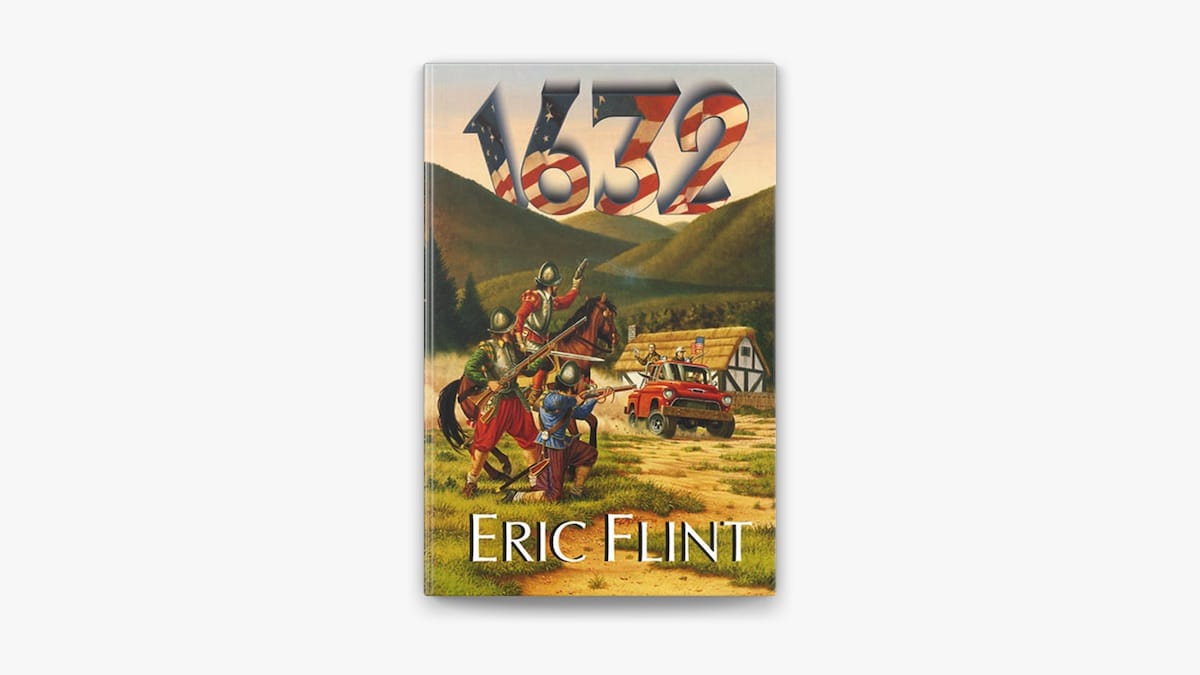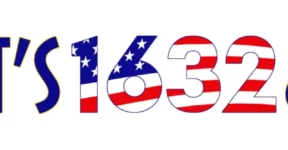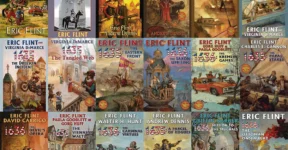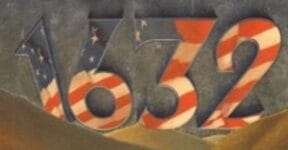As the small town of Grantville is celebrating the marriage of Rita Stearns and Tom Simpson, a blinding flash and thunderous crash take the wedding reception by surprise. Everyone is still there, but there’s something peculiar about the whole thing. As they explore the surrounding area and gather all the evidence they can find, the entire neighborhood has been transported across the Atlantic Ocean to Thuringia, Central Germany. On closer inspection, not only did they teleport to a different continent, but they also traveled back in time to 1631 at the height of the Thirty Years’ War. Their otherwise peaceful modern-day West Virginia town is now suddenly amid violence, suffering, rape, and pillage in the 17th century Europe. 1632 by Eric Flint tells the story of how the resourceful citizens of Grantville get involved in a bloody war and resolve to infuse some American decency, justice, and democracy into the conflict-ridden Europe.

Setting it Up
If you like alternate history but want to avoid hard sci-fi, there’s probably an earnest 1632 fan in you. Before the actual story begins, Eric Flint makes it clear in the prologue that the novel will NOT have any discussion about wormholes, quantum physics, magic portals, and many out-of-this-world technologies. The first novel, as well as the entire series for that matter, is all about alternate history of the Thirty Years’s War, and you can get right into the topic without having to delve into the sci-fi side of it. The people of Grantville are, simply put, Americans put right in the middle of Central Germany as the country deals with an escalating conflict that’s about to involve major powers in Europe. The small force of Americans is poised to take on evil mercenaries, so won’t feel overly disturbed when the enemies are forced to face their annihilation.
Some people might find that the transition from 21st century America to 17th century Europe is about half done, but fans of the books actually prefer the simplicity. For example, there will not be a problem with mental disorientation of any kind; since the entire town is transported back to the past, no one is going to miss anybody left behind (none is left behind), there will not be any spiritual crisis, everyone remains rational, no scapegoating at all, and nobody will even question why they get stuck in the 1630s. It would make more sense if some of them suddenly get involved in a bickering that quickly turns into a finger-pointing frenzy, but no – the show must go on and everyone accepts it is what it is.
More importantly, all the modern technologies in the town are also present. The people of Grantville, now in the 1630s Central Germany, never have to worry about sanitation, clean water, electricity, and medicines. Even radios and TVs come along on the journey; they do need to create their own programming, but the technologies work just fine. They land just next to a river and have their own coal vein, so steam power is ready for the taking. It’s a good thing that Grantville has some machine shops, a power plant, and a jewelry store, too. There are even several doctors in town as well.
Everyone in Grantville is aware of the space-time incident and willing to take on the challenge. In fact, some of the most exciting details in the novel is about how the modern Americans realize that it’s impossible to maintain their level of technology in the current timeline, prompting them to gear down and convert to old-school devices – let’s say to ensure compatibility with legacy inventions. This is a brilliant survival strategy, allowing them to focus on the more pressing issue of the day: the war.
The general opinion among the fans is that 1632 sets the tone right for an alternate history series. There are plenty of books within the series’ universe, but you don’t actually have to read every single one of them to follow the story. Any 1632 fan who has read the entire collection of books will tell you that apart from the seven mainline books (also known as the “main thread”), nothing much propels the plot line forward. Many are side plots or little slices of life stories with little significance over the major theme. Most of the actions are in the main thread.
Some say the series itself is not great literature, but entertaining enough to keep you going. The first book, 1632, actually is pretty bad compared to the subsequent volumes.
We think the 1632 series is overall a fun read, and the quality of the writing does improve as the series progresses with all the side stories. Once the main storyline branches off in several directions, however, it’s easy to lose track as you seem to get drowned in a flood of subplots. World building and technology, rather than the prose itself, are the series’ biggest selling points, so it’s not exactly highbrow but exciting. Some of the side stories can be a hit or miss, but that’s expected in a series that comprises dozens of volumes. It’s also worth mentioning that the morality in relation to the American democracy described in the novel feels a little too black and white, which actually is a kind of rarity these days.
Do you think alternate history is better categorized as sci-fi, fantasy, or a bit of both? If there’s an infinite number of parallel universes, does it mean there’s also an infinite number of alternate histories? We’d love to hear from you.
Other Things You Might Want to Know
Popular alternate history films:
Red Dawn (1984)
- White Man’s Burden (1995)
- C.S.A.: The Confederate States of America’ (2004)
- Inglourious Basterds (2009)
- One Hundred Years of Evil (2010)
- Resistance (2011)
- Once Upon a Time… in Hollywood (2019)
What is the biggest legacy of the Thirty Years’ War?
At the end of the war, both the Holy Roman Empire and the Spanish Empire were having a major decline, while France established itself as a formidable power in Europe. The Catholic Church also underwent a decline in its political influence across the continent.
What is the Baen Free Library?
Founded by Jim Baen and Eric Flint, the Baen Free Library is an experiment to see whether printed books increase their sales when the electronic versions of them are made available free of charge. The library is still active now and contains quite a list of free books of both nonfiction and fiction genres, including Flint’s own 1632.
Check out other articles by month:







